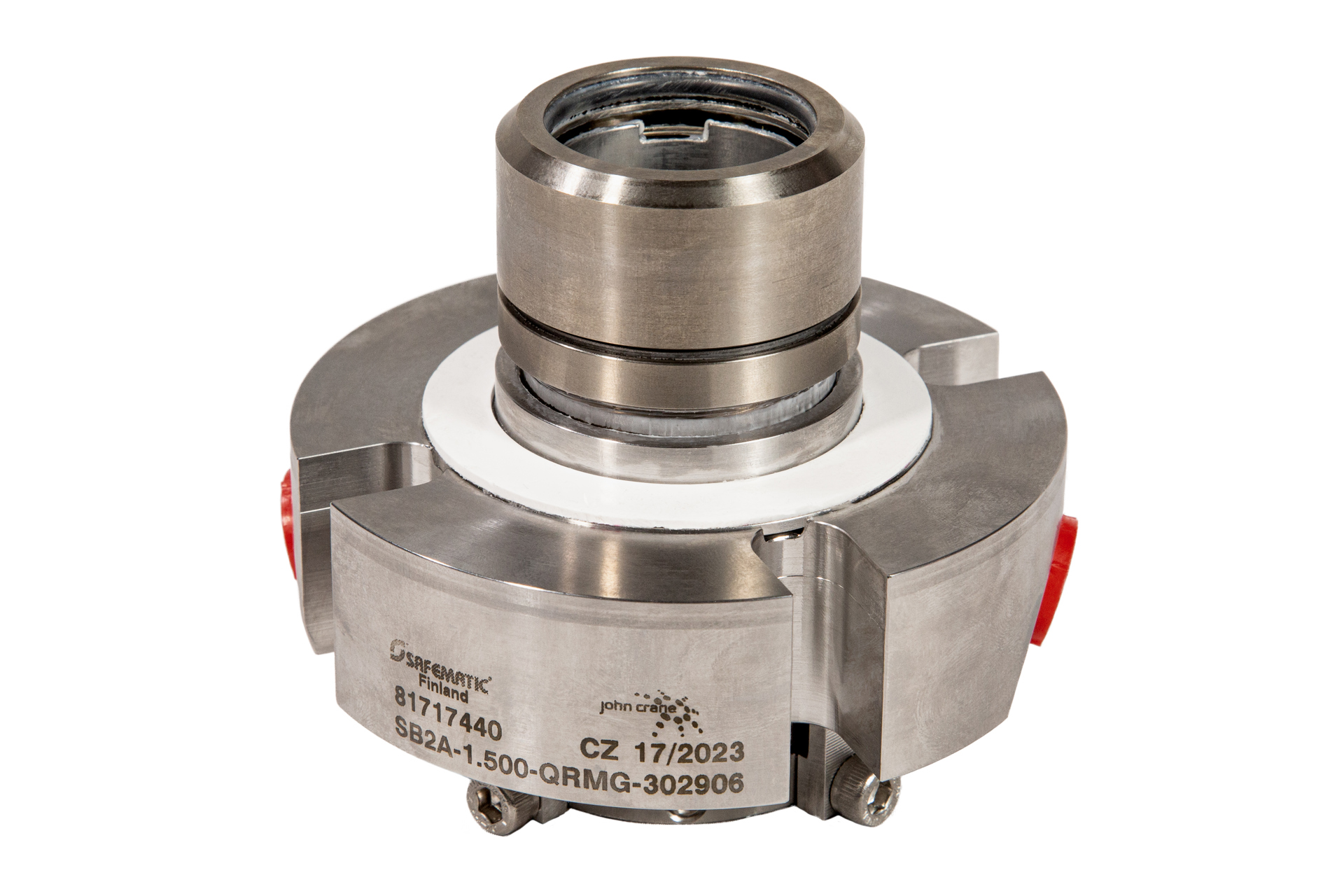The High Cost of Weak Mechanical Seals in the Bleaching Line
May 22, 2025
3 Minute Read
Bleaching is one of the most chemically intense stages in pulp production. In this process, where brown pulp is treated to become bright white, any reliability issues with your mechanical seals will quickly escalate into high maintenance costs, process disruption and environmental risks.
As mills push for lower emissions, reduced chemical use and greater sustainability, they’re shifting to modern, multi-stage bleaching systems. This shift places new demands on rotating equipment, especially pumps and mixers. If your mechanical seals can’t handle the bleaching line's extreme temperatures, chemicals and fibre consistency, your entire process could be compromised.
Bleaching: A High-Pressure Process
The bleaching process runs at pulp consistencies of 10–15%, with temperatures as high as 100° C and a wide pH range of 2–12. That means your pumps and mixers aren’t just handling aggressive chemicals—they’re doing it while moving dense, fibrous slurry packed with abrasives.
To manage this, most mills rely on specially designed medium-consistency pumps and mixers fitted with screw impellers, gas removal functions and in-line chemical dosing. But that only works if your mechanical seals are just as robust.
The Real Risk: Unreliable Mechanical Seals
Mechanical seal failure in this part of the process doesn’t just halt production, it risks product contamination, excessive chemical loss and high-water usage. That’s why double mechanical seals are essential—they offer the reliability needed to protect uptime, product quality and environmental compliance.
The solution depends on the pump's make, model and operating conditions. John Crane offers sealing systems tailored to every configuration.
Mechanical Sealing Solutions for the Bleaching Line
-
Type SE2 and Type JCS2 Dual Seals
Best for: Sulzer and Andritz MC-pumps
Double-balanced and OEM-engineered for tough fibrous slurries, these mechanical seals offer long-term reliability even under high temperature, pressure and pH extremes. They are designed for critical duties where downtime is not an option.

-
Type SB2 and Type SB2A Cartridge Seals
Best for: Goulds MC-pumps
These dual-cartridge mechanical seals offer robust protection against fibre and chemical damage. The double-gland variant is ideal for high-consistency slurry, keeping performance high and unplanned shutdowns minimal.

-
Type 680 Metal Bellows Seals
Best for: Sulzer MC-pumps with internal vacuum pump design
With built-in gas handling, the Type 680 with metal bellows is designed for vacuum tolerance and consistent sealing performance.

Available in corrosion-resistant materials such as AISI 329 or 316 stainless steel and seal faces in SiC/SiC or SiC/Carbon with PTFE, EPDM or FFKM elastomers, these seals are built to handle aggressive chemical environments.
Smarter Mechanical Seal Water Control
In modern bleaching applications, controlling seal water is as essential as selecting the correct mechanical seal. Excess water use increases costs, dilutes the process and wastes energy. Poor control also raises the risk of mechanical seal failure and product contamination. That’s where John Crane’s Safeunit™ makes a difference. It helps:
- Control and monitor seal water flow and pressure
- Prevent water loss to the process via internal leak detection
- Support both visual and electronic monitoring
- Trigger alarms and pump interlocks when seal water flow is too low
John Crane Safeunit systems are available in designs specific to bleaching applications, including options that control water flow to vacuum pumps where needed. Combined with low-flow alarms and interlocks, it can help protect uptime and enable smarter, more efficient maintenance planning.

For higher-pressure needs, Plan 54 seal water control assemblies are also commonly used, ensuring consistent barrier fluid delivery to keep mechanical seals in peak condition, even in aggressive bleaching stages.
Your Partner for Sealing Solutions
If your mill is facing high maintenance costs, rising water usage or unpredictable mechanical seal life in the bleaching line, explore our pulp and paper solutions and see how John Crane can help your operation run cleaner, leaner and more reliably.